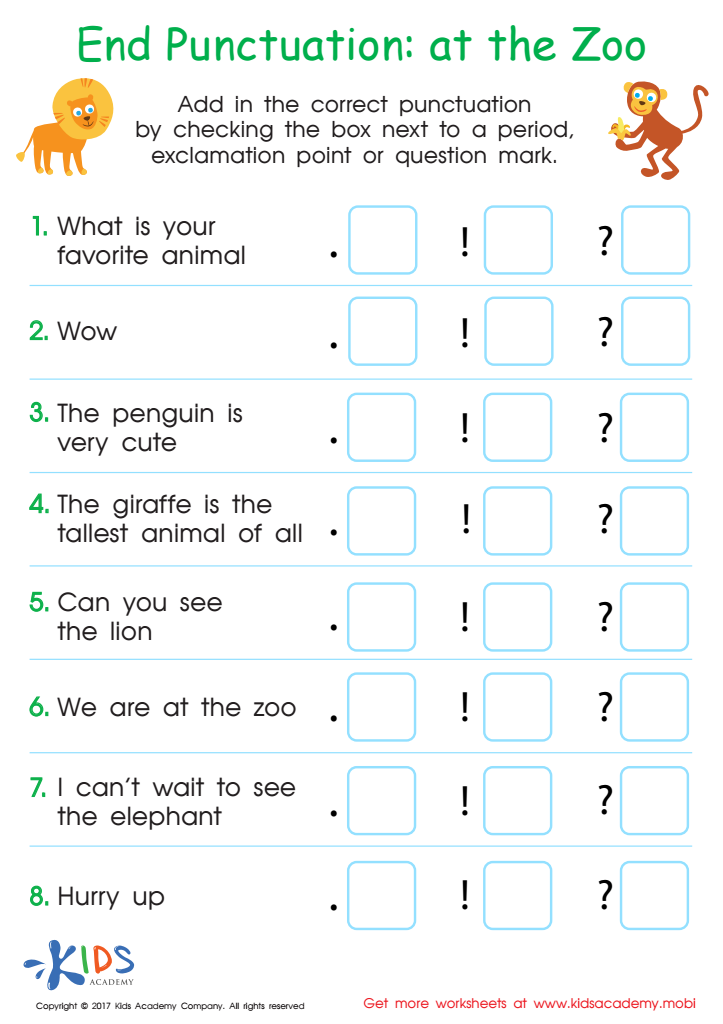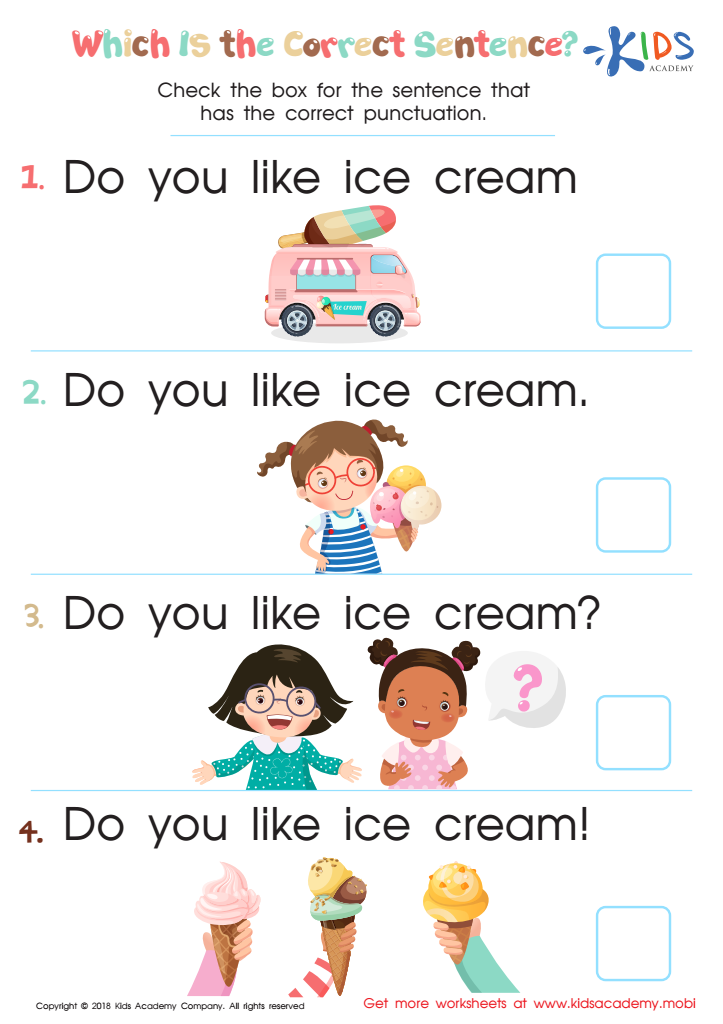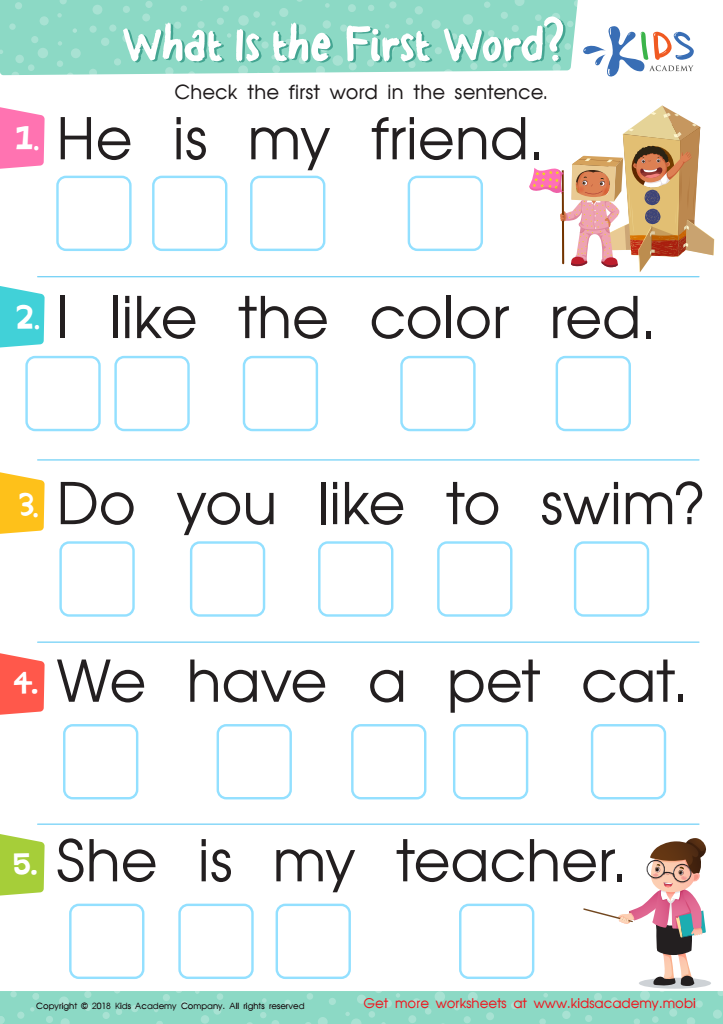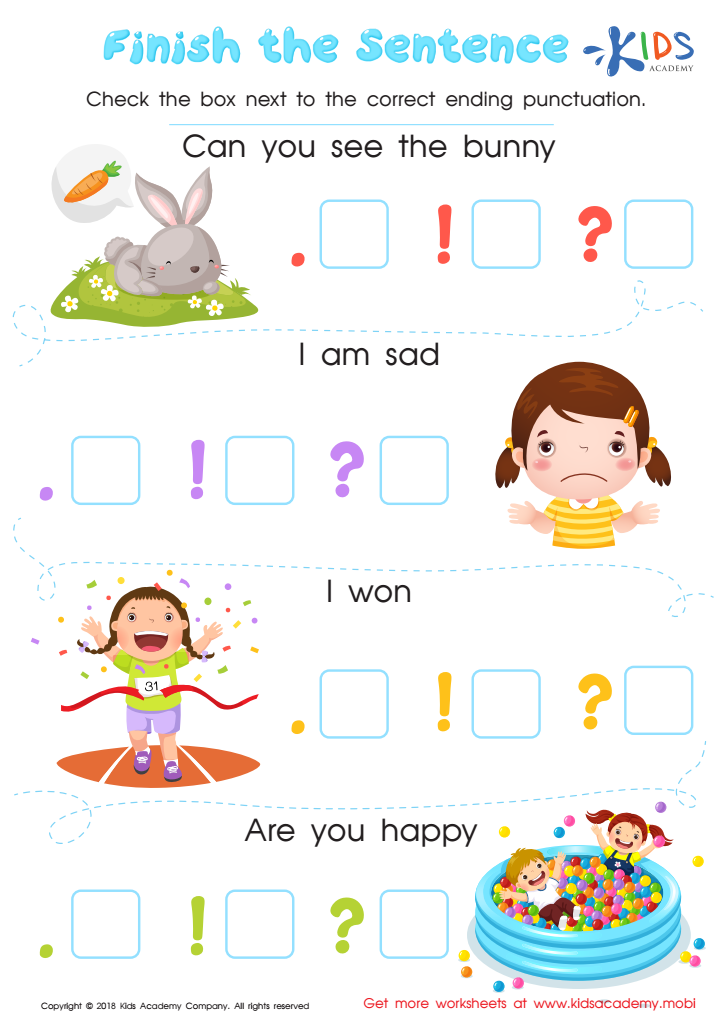Reading comprehension Normal Punctuation Worksheets for Ages 3-6
4 filtered results
-
From - To
Enhance your child's reading comprehension skills with our engaging Normal Punctuation Worksheets designed for ages 3-6. These worksheets offer fun, interactive activities that help young learners recognize and apply punctuation marks, contributing to their overall literacy development. Each worksheet includes colorful illustrations and age-appropriate exercises that make learning enjoyable. By practicing with these resources, children will improve their understanding of sentence structure, enhancing their reading skills and confidence. Perfect for educators and parents alike, our worksheets create a strong foundation for effective communication. Download our Reading Comprehension Normal Punctuation Worksheets today and inspire your little ones to become confident readers and writers!


End Punctuation: At the Zoo Worksheet


Which is the Correct Sentence? Worksheet


What is the First Word? Worksheet


Finish the Sentence Worksheet
Reading comprehension is a vital skill for children aged 3-6, forming the foundation for their future academic success. Parents and teachers must prioritize it for several reasons. Firstly, during these formative years, children are rapidly developing language skills and cognitive abilities. By focusing on reading comprehension, we help them make connections between words and their meanings, enhancing vocabulary and language proficiency.
Secondly, strong reading comprehension promotes critical thinking. As children engage with stories, they learn to interpret information, analyze characters, and understand different perspectives. This skill fosters creativity and empathy, which are essential for personal and social development.
Furthermore, early exposure to reading comprehension can instill a lifelong love for books and learning. When children grasp what they read, they are more likely to enjoy reading, leading to better engagement in school as they progress.
Finally, reading comprehension is crucial for academic achievement. Many subjects, from science to social studies, require the ability to understand text. By supporting reading comprehension early on, parents and teachers equip children to thrive in later educational settings and beyond. Cultivating this skill now will lay the groundwork for a successful future in learning and life.
 Assign to My Students
Assign to My Students


















